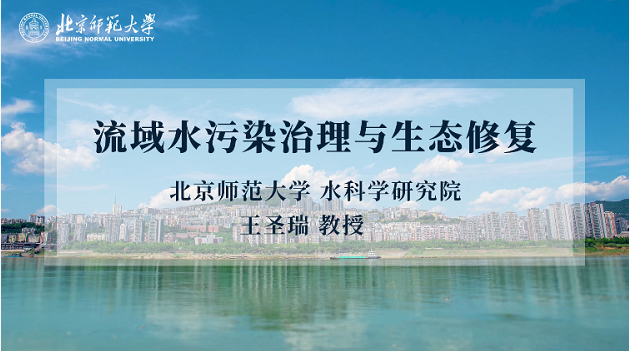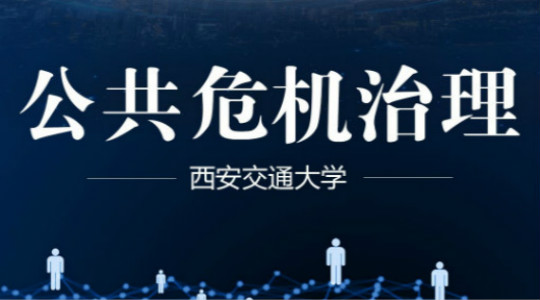
当前课程知识点:Research Methods in Tourism Studies > Week 6 Research Ethics > 6.2 Academic Ethics > 6.2.1 Academic ethics
返回《Research Methods in Tourism Studies》慕课在线视频课程列表
返回《Research Methods in Tourism Studies》慕课在线视频列表
我想谈的最后一个话题
是学术界最关键的话题之一 即学术道德
你可能会说 什么是道德
它在不同的学科领域有所不同
它在不同的学科领域有所不同
对于学术界来说
我们在这里所说的只是良好的行为准则
特别是与我们必须接受和遵守的出版物有关的准则
而从这个意义上讲 当我们谈论学术伦理的同时
也要知道如何避免违规
我们如何避免在我们的工作中变得不道德
在学术伦理方面 我们在这里所做的是努力确保每个人
都试图以符合伦理的方式发表作品
这是什么意思
如果我们在使用别人的作品
如果我们真的在看他们在一本书、一张纸或一本小册子上的作品
那么我们必须非常小心
不要伪造我们没有的东西
我发现我正在读别人的文章 该文章恰好有引用我的论述
但我从来没有这么说过
因此 伪造是必须避免的
其次 考虑到造假和篡改的后果
你必须非常小心
如果你引用某人的话 你就用双引号
这是第一点
其次 引用需要准确
因此 通常你不仅要给出引用的来源
还要给出页码
因此 如果有人想要核实作者是否真的说了这句话
那么参考文献需要是准确的
你也可以回去检查一下
第三点是学术界最大的问题之一 那就是剽窃
剽窃是一个礼貌的词
但它真正的意思是窃取他人的作品 而不说明是他人所有
举个例子 如果你从某人的书中取了一章
或者从某人的论文中取了一节 那么你必须给出来源
你不得不说 这是从这本书 这一页 这个作者这里来的
如果不这么做 那就是剽窃
我是说 你窃取了别人的作品
在学术界 剽窃有时是个大问题
这几乎是一种犯罪
如果你被指控剽窃
通常情况下你的学术生涯都会受到牵连
因此 必须不惜一切代价避免这种情况
所以如果你要引用某人的作品
一定要确保引用是准确的
如果它不是引用 而是引用某人的话
那么请记住 你不仅要给出那个人的名字
那本书或文章的名字 还要给出具体页码
你也可以自己回去检查了
我认为剽窃的问题之一是
过去的人常常侥幸逃脱
你现在一定不能这么做
因为几乎所有的教育机构都会有一个电脑程序
他们会浏览你的论文
他们可以马上知道
有多少内容是从其他来源获得的
不管你承认与否
这些计算机程序正变得越来越复杂
所以 千万不要这样做!
实际上把它归于某人要容易得多,
而不是试图把它当作自己的成果
我们如何避免这些违规行为呢
我们有学术评估的标准
其中的一个标准肯定是计算机程序
它通过程序运行来检验你的研究
可以立即判断出研究中是否有其他作者的作品
从这个意义上说 这不太重要
如果你提供你引用的来源
因为你很诚实
当然 如果参考引用的资料太多也不行
例如 如果你文章的50%是从别人那里借来的
即使你把它归于别人的
评估结果也不会给你通过 因为复写比例太高了
不同大学对引用率的要求不同
但底线是你必须加以引用
学术规范的内涵意味着
你所注释的任何东西都必须是准确的
例如 你可以说 为你的研究设计一个新的表格
但是表中的信息来源
你必须放在表下面
如“这是约翰·史密斯的作品”
所以这意味着:虽然信息是你的
尽管信息是新的
但这个人以前已经使用过这种方法
学术引用的规范
意味着无论你引用某人的作品
都有一个标准 而且必须是准确的
学术研究是一个期望你诚实和透明的领域
从这个意义上说 从你们作为本科生的早期阶段
你们要反复灌输
培养的一件事就是要避免诱惑
不要成为剽窃者
确保你使用的任何属于别人的作品
都有适当的归属 适当的引用
如果是引用
那么就用引号和页码
我无法告诉你这些事情有多重要 因为很明显
如果你违反了这些标准
那么你的职业生涯将会受到严重的影响
这可能会阻碍你未来事业的发展
因为你总是被指控为剽窃者
避免它 因为我们也没有必要这么做
非常感谢
-1.1 Research Question and Research Objectives
--1.1.1 Student interview before class
--1.1.2 The starting point: question
--1.1.3 What is a good research question?
--1.1.4 Ways to find a good research question
-1.2 Title Design
--Acticle: Leisure & Travel as Class Signifier: Distinction Practices of China's New Rich
--Discussion: Why do we research?
-1.3 Literature Retrieval Method and Literature Databases
--1.3.1 Common literature retrieval method
--1.3.2 Common literature search database
-1.4 Information Collection and Academic Journals in Tourism
--1.4.1 Academic journals in tourism research
--1.4.2 Literature collection methods and principles
-1.5 Literature Reading
--1.5.2 Overcoming obstacles in literature reading
--Week 1 quiz
--Discussion: What difficulties have you encountered in reading literature?
-2.1 Philosophical Bases of the Two Approaches
--2.1.1 Philosophical bases of the two approaches
-2.2 Differences between the Two Approaches
--2.2.1 Differences between the two approaches
--Article: Does tourist–host social contact reduce perceived cultural distance?
-2.3 Be Aware of Your Own Research Views
--2.3.1 Be aware of your own research views
--Discussion: How to choose research method?
-2.4 Research Example: Social Tourism
--2.4.1 What is social tourism?
--2.4.2 Established frameworks on social tourism
--2.4.3 Major research findings on social tourism
--2.4.4 Major findings of social tourism research
--2.4.5 Opportunities and challenges for social tourism
--Week 2 quiz
- 3.1 Key Procedures in Qualitative Approach
--3.1.1 Key procedures in qualitative approach
-3.2 Qualitative Data Collection and Analysis
--3.2.1 Key procedures and data collection methods in qualitative approach
--3.2.2 Data collection and analysis in qualitative approach
--3.2.3 Data analysis in qualitative approach
-3.3 Case Study and Content Analysis
--Discussion: Have you ever used a qualitative approach in your research?
-3.4 Using Coding and Themes in Qualitative Research
--3.4.1 Using coding and themes in qualitative research(1)
--3.4.2 Using coding and themes in qualitative research(2)
-3.5 Using Conceptual Framework in Qualitative Research
--3.5.1 Using conceptual framework in qualitative research(1)
--3.5.2 Using conceptual framework in qualitative research(2)
--Article: Tourist typology in social contact: an addition to existing theories
--Week 3 quiz
--Discussion: How to ensure the reliability and validity of qualitative study?
-4.1 Using Questionnaires in Quantitative Research
--4.1.1 Make an effective literature review and research method design
--4.1.2 Learn to write powerful findings and discussion
-4.2 Using Experiment in Quantitative Research
--4.2.4 Eye tracking experiment
-4.3 Using Mixed Method
--4.3.1 Sustainabble tourism development (1)
--4.3.2 Sustainabble tourism development (2)
--Article:Creating a scale for assessing socially sustainable tourism
--Week 4 Quiz
--Discussion: How to use quantitative methods to study tourists' reaction?
-5.1 Current Research Priorities
--5.1 1 A review of hospitality research
--5.1.2 Impact of information technology on hospitality and tourism research
-5.2 Multi-Level/ Multiple Sources of Date Collection
--5.2.1 Experimental design (1)
--5.2.2 Experimental design (2)
--5.2.3 Multi-level/multiple sources of data collection
-5.3 Mixed Method and Interdisciplinary Research
--5.3.2 Interdisciplinary research
--Article: The meanings of destination: a Q method approach
--Discussion: Can you talk about your understanding of research methods?
-5.4 Using Delphi Method in Research Design
--5.4.1 What is the Delphi method?
--5.4.3 Characteristics of the Delphi method
--5.4.4 Predicting the future of wine tourism
--Week 5 quiz
--Discussion: Philosophical basis of research methods
-6.1 Journal Publication
--6.1.1 How to publish in the top journals? (1)
--6.1.2 How to publish in the top journals? (2)
--6.1.3 How to publish in the top journals? (3)
--6.1.4 How to publish in the top journals? (4)
--Article: Analyzing the economic sustainability of tourism development: evidence from Hong Kong
-6.2 Academic Ethics
--6.2.2 Student interview after class
--Week 6 quiz
--Discussion: Academic publication and academic ethics
--Final quiz

